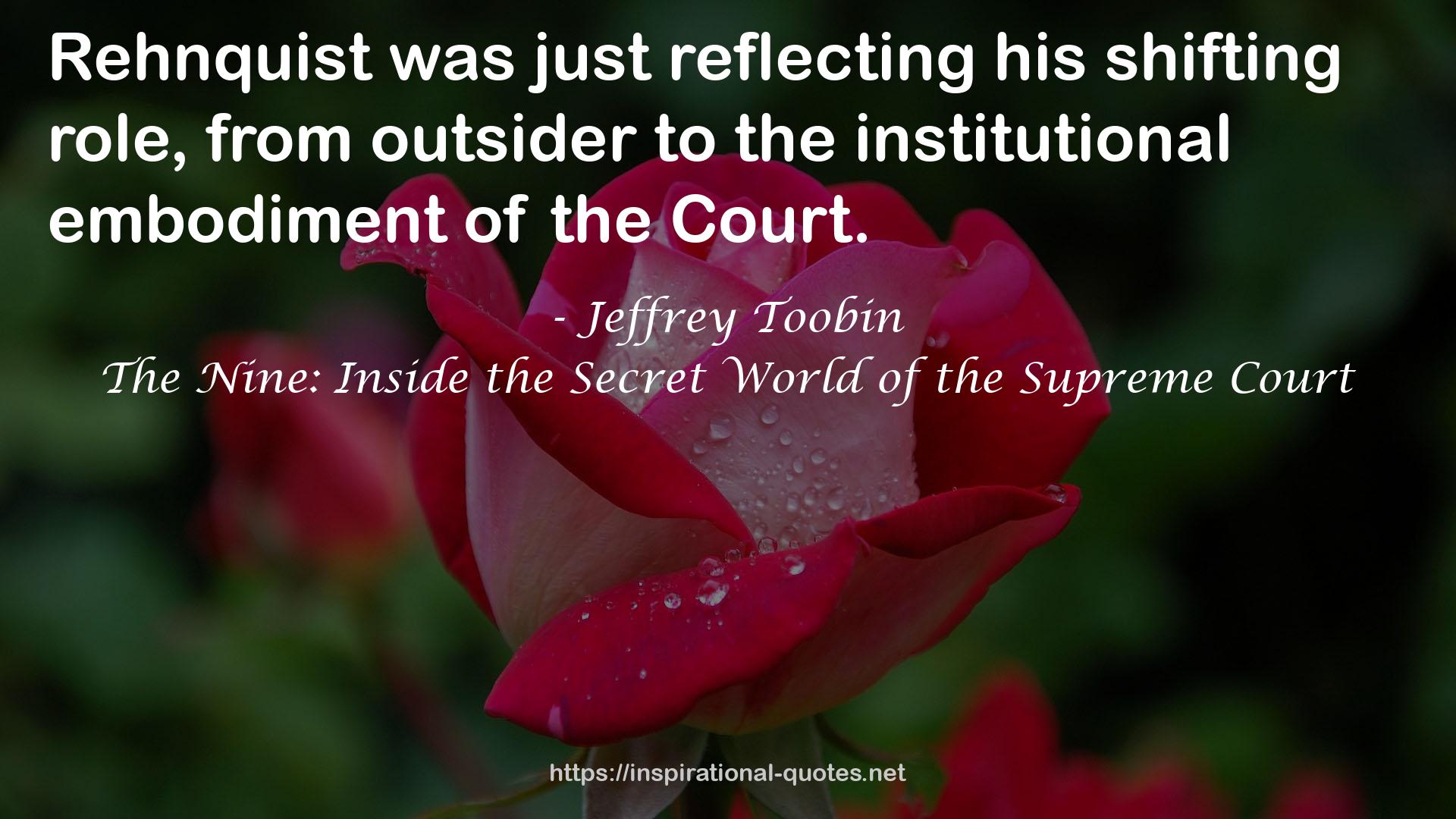Jeffrey Toobin QUOTES
2 " Toughened or coarsened by their worldly lives, the other dissenters could shrug and move on, but Souter couldn't. His whole life was being a judge. "
10 " In public at least, Roberts himself purports to have a different view of the Court than his conservative sponsors. "Judges are like umpires," he said at his confirmation hearing. "Umpires don't make the rules; they apply them." Elsewhere, Roberts has often said, "Judges are not politicians." None of this is true. Supreme Court justices are nothing at all like baseball umpires. It is folly to pretend that the awesome work of interpreting the Constitution, and thus defining the rights and obligations of American citizenship, is akin to performing the rote […] task of calling balls and strikes. When it comes to the core of the Court's work, determining the contemporary meaning of the Constitution, it is ideology, not craft or skill, that controls the outcome of cases. "
11
" The dilemma facing Bush and the Republicans was clear. If Marshall left, they could not leave the Supreme Court an all-white institution; at the same time, they had to choose a nominee who would stay true to the conservative cause. The list of plausible candidates who fit both qualifications pretty much began and ended with Clarence Thomas.
… There was awkwardness about the selection from the start. "The fact that he is black and a minority has nothing to do with this," Bush said. "He is the best qualified at this time." The statement was self-evidently preposterous; Thomas had served as a judge for only a year and, before that, displayed few of the customary signs of professional distinction that are the rule for future justices. For example, he had never argued a single case in any federal appeals court, much less in the Supreme Court; he had never written a book, an article, or even a legal brief of any consequence. Worse, Bush's endorsement raised themes that would haunt not only Thomas's confirmation hearings but also his tenure as a justice. Like the contemporary Republican Party as a whole, Bush and Thomas opposed preferential treatment on account of race—and Bush had chosen Thomas in large part because of his race. The contradiction rankled. "
13 " In one respect, though, the Court received unfair criticism for Bush v. Gore—from those who said the justices in the majority "stole the election" for Bush. Rather, what the Court did was remove any uncertainty about the outcome. It is possible that if the Court had ruled fairly—or better yet, not taken the case at all—Gore would have won the election. A recount might have led to a Gore victory in Florida. It is also entirely possible that, had the Court acted properly and left the resolution of the election to the Florida courts, Bush would have won anyway. The recount of the 60,000 undervotes might have resulted in Bush's preserving his lead. The Florida legislature, which was controlled by Republicans, might have stepped in and awarded the state's electoral votes to Bush. And if the dispute had wound up in the House of Representatives, which has the constitutional duty to resolve controversies involving the Electoral College, Bush might have won there, too. The tragedy of the Court's performance in the election of 2000 was not that it led to Bush's victory but the inept and unsavory manner with which the justices exercised their power. "

